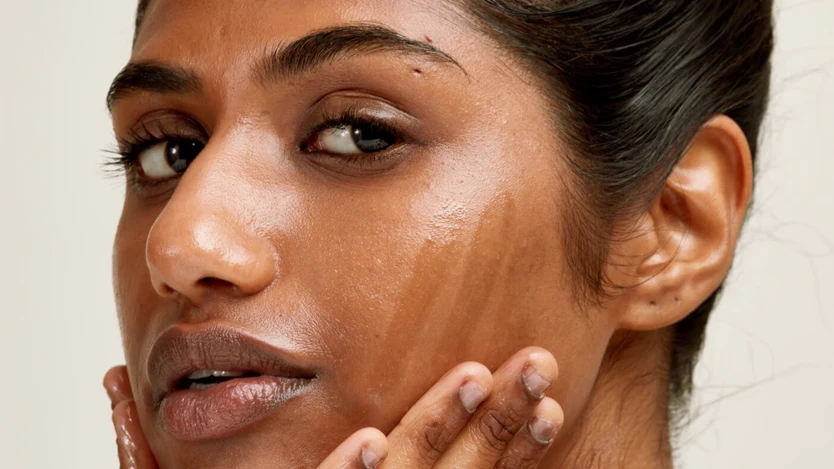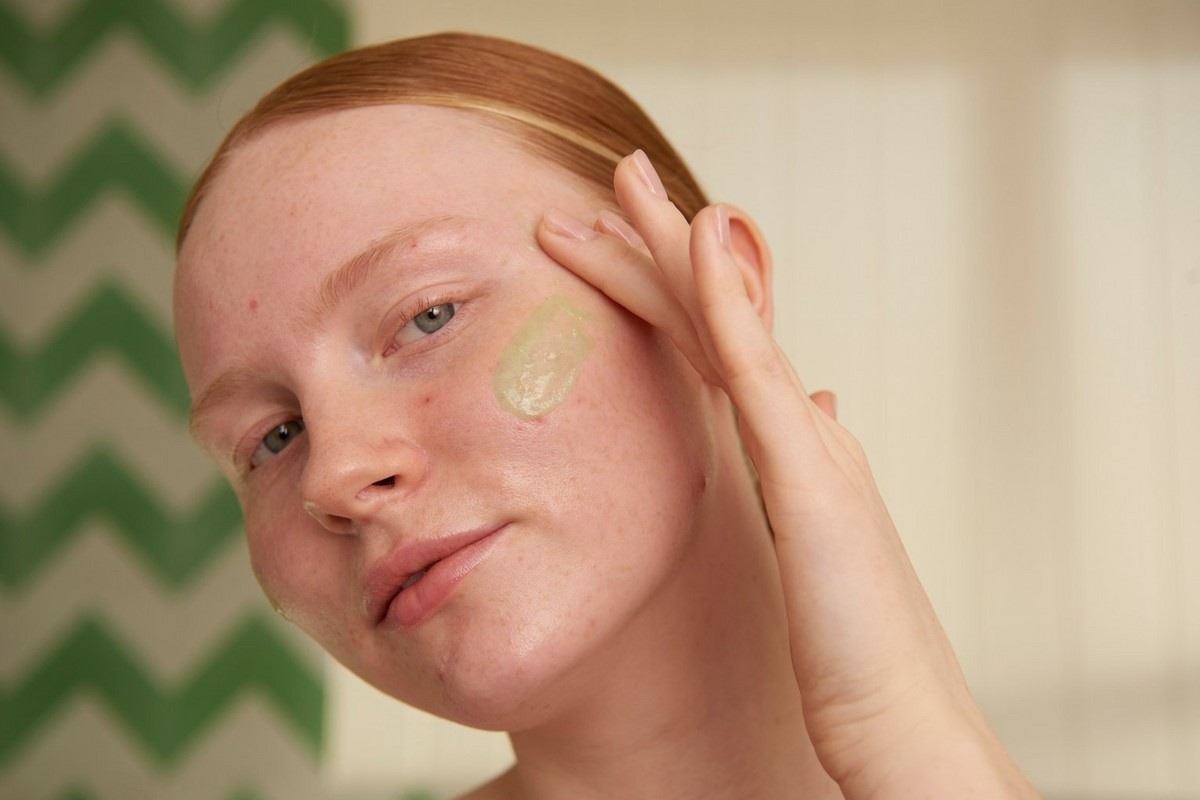Managing Oily Skin - 17 Essential Tips Unveiled
Discover effective strategies for managing oily skin. Essential tips and techniques for clearer, balanced complexion.
Author:Katharine TateReviewer:Karan EmeryMar 01, 20246.2K Shares90.3K Views

Managing oily skincan be challenging, but with the right techniques and products, it's possible to keep shine at bay and maintain a clear, balanced complexion. Oily skin is characterized by excess sebum production, which can lead to enlarged pores, acne, and a greasy appearance. However, with a consistent skincare routine and lifestyle adjustments, you can effectively manage oily skin and achieve a healthy, matte complexion.
Understanding Oily Skin
Oily skin is the result of overactive sebaceous glands, which produce an excess of oil or sebum. This excess oil can clog pores and lead to acne breakouts, blackheads, and whiteheads. Oily skinis often genetic but can also be influenced by factors like hormones, diet, and skincare habits.
Oily skin has several advantages even if it can block pores and aggravate acne breakouts. People with oily skin typically have thicker skin and fewer wrinkles because oil helps protect the skin. Finding the right balance between excessive oil production and preserving your skin's natural moisture content is crucial.
Identifying Oily Skin Symptoms
Common symptoms of oily skin include a shiny or greasy complexion, enlarged pores, frequent acne breakouts, and a thick or coarse texture. Oily skin may also be prone to blackheads, whiteheads, and other types of blemishes.
Here is how managing oily skin is done properly:
Establishing A Skincare Routine
A consistent skincare routine is essential for managing oily skin. Start by cleansing your face twice daily with a gentle, oil-free cleanser to remove excess oil, dirt, and impurities. Follow up with a toner to help balance the skin's pH levels and minimize the appearance of pores.
Choosing The Right Products
When selecting skincare products for oily skin, opt for oil-free or non-comedogenic formulas that won't clog pores or exacerbate oiliness. Look for lightweight moisturizers and hydrating serums that provide hydration without adding excess oil to the skin.
Reducing Alcohol Consumption
Drinking alcohol too much over time might harm blood vessels. It may result in the enlargement of oil glands and blood vessels, which expands the pores in the skin. Therefore, cutting back on alcohol consumption may be beneficial for those with oily skin.
Using Salicylic Acid
Salicylic acid is a beta-hydroxy acid (BHA) that can help exfoliate the skin and unclog pores, making it an excellent ingredient for oily skin. Incorporate a salicylic acid-based exfoliant into your skincare routine to help prevent acne breakouts and keep pores clear.
Using Mineral And Setting Powders
Makeup products that are water-or mineral-based, and oil-free are less likely to clog pores. Setting powders without talc can also assist in absorbing extra oil from the face.
Removing Makeup Prior To Sleeping
Makeup can irritate skin and clog pores when it is left on overnight. Makeup should always be removed with a mild, pH-balanced cleanser before going to bed. Do not scrub the face; instead, gently wipe it dry with a clean cloth.
Limiting Exfoliation
While exfoliation is essential for removing dead skin cells and preventing clogged pores, over-exfoliating can strip the skin of its natural oils and lead to increased oil production. Limit exfoliation to 2-3 times per week to avoid irritation and maintain balance.
Using Oil-Absorbing Products
Oil-absorbing products like clay masks, blotting papers, and mattifying powders can help control shine throughout the day. Use these products as needed to absorb excess oil and keep your skin looking matte and fresh.
Avoiding Heavy, Oil-Based Products
Heavy, oil-based skincare products can exacerbate oiliness and contribute to clogged pores and breakouts. Opt for lightweight, water-based formulations that won't weigh down your skin or add extra shine.
Wearing Sunscreen Daily
Sunscreen is essential for protecting the skin from harmful UV rays and preventing premature aging, but it's crucial to choose a non-comedogenic, oil-free formula that won't clog pores or exacerbate oiliness. Apply sunscreen daily, even on cloudy days, to keep your skin protected.
Managing Stress
Stress can trigger hormone fluctuations that can worsen oily skin and lead to breakouts. Practice stress-management techniques like meditation, deep breathing, or yoga to help keep stress levels in check and maintain a healthy complexion.
Putting On A Face Mask
There is little scientific proof, but people have utilized a variety of herbal or natural products to cut down on excess skin oil. Several of these things can be used to make handmade masks.
Recent studieshave shown that clay and parsley masks are among the most researched and suggested methods for reducing oily skin. One of the many cosmetic applications for clay, particularly green clay, is its ability to absorb and remove oil, debris, and filth from the skin's surface.
A wide variety of vitamins and minerals found in parsley aid in controlling the production and absorption of sebum. Masks with about 4% parsley powder might be useful for controlling oil production.
Eating A Balanced Diet
Diet can play a significant role in skin health, so focus on eating a balanced diet rich in fruits, vegetables, lean proteins, and whole grains. Limiting sugary, greasy, and processed foods can help reduce inflammation and improve overall skin quality.
Staying Hydrated
While it may seem counterintuitive, staying hydrated is essential for managing oily skin. Dehydrated skin can actually produce more oil to compensate for the lack of moisture, so be sure to drink plenty of water throughout the day to keep your skin hydrated from the inside out.
Avoiding Touching Your Face
Touching your face can transfer bacteria, dirt, and oil from your hands to your skin, potentially leading to breakouts and irritation. Avoid touching your face throughout the day and be mindful of keeping your hands clean to prevent unwanted oil buildup.
Being Patient
Managing oily skin is a journey that may require some trial and error to find the right combination of products and techniques that work for you. Be patient and consistent with your skincare routine, and don't be afraid to adjust as needed to achieve the best results.
Consult Your Dermatologist
Consult your dermatologist if using over-the-counter products isn't enough to help you control oily skin. Chemical peels and lasers can help lessen oiliness and enhance the appearance of your skin overall. By changing pores and lessening oiliness, creams infused with tretinoin, adapalene, or tazarotene can also be beneficial.
Managing Oily Skin - FAQs
Which Skincare Products Are Best For Managing Oily Skin?
Look for oil-free or non-comedogenic skincare products that won't clog pores or exacerbate oiliness, including gentle cleansers, lightweight moisturizers, and oil-absorbing treatments.
Can Stress Affect Oily Skin?
Yes, stress can trigger hormone fluctuations that can worsen oily skin and lead to breakouts. Managing stress through relaxation techniques can help improve skin health.
How Do I Stop My Face From Being So Oily?
- DO wash your face in the morning, at night, and right after working out.
- SELECT skin care items that bear the labels "noncomedogenic" and "oil free."
- DO use an alcohol or oil-based cleanser.
- DO use a mild foaming face wash.
- DO use a moisturizer on a daily basis.
- USE SPF when you're outside.
How Do You Maintain Oily Skin?
- Apply a mild cleanser.
- Apply a toner.
- Put on some moisturizer.
- Apply sunscreen.
- Make use of blotting papers.
How Can I Reduce Oily Skin Naturally?
- Wash your face with warm water twice a day.
- Using goods based on water.
- Altering one's diet to exclude trans fats and oily foods, for example.
- Consuming a diet rich in healthy foods and well-rounded.
- Staying hydrated.
- Don't touch your face during the day.
- Using moisturizer on a regular basis.
What Is A Good Routine For Oily Skin?
The first steps of an oily skin morning skincare regimen are cleaning with a mild cleanser, toning with a non-alcoholic toner, applying a lightweight moisturizer, sunscreen, eye cream, and serum, and using an exfoliant twice a week. Next, apply a face mask made of clay twice a week.
Are There Specific Ingredients I Should Look For In Skincare Products For Oily Skin?
Look for ingredients like salicylic acid, which can help exfoliate the skin and unclog pores, as well as lightweight hydrators like hyaluronic acid.
Conclusion
Managing oily skin requires a combination of skincare products, lifestyle adjustments, and patience. By following a consistent skincare routine, choosing the right products, and adopting healthy habits, you can effectively control oil production, minimize breakouts, and achieve a clear, balanced complexion.

Katharine Tate
Author

Karan Emery
Reviewer
Latest Articles
Popular Articles

